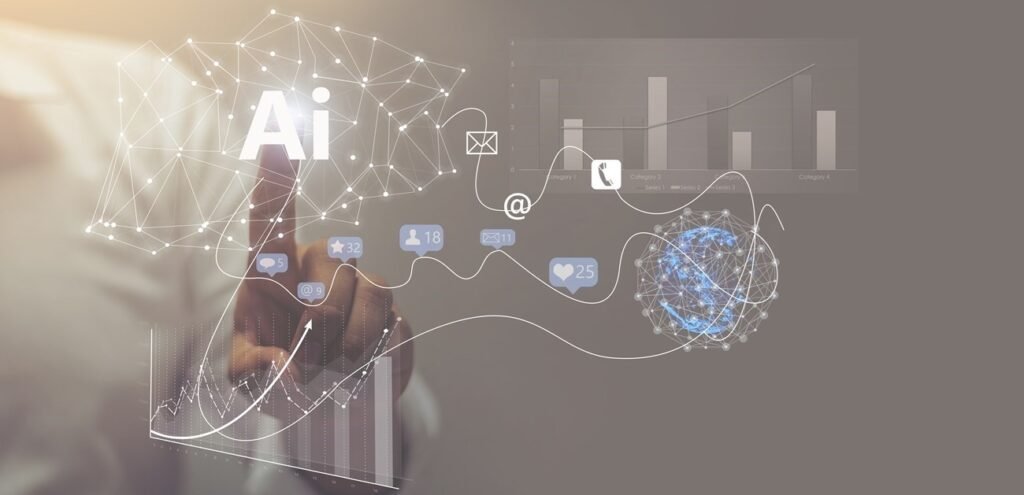In a bold and historic move, the UAE becomes the first country in the world to use Artificial Intelligence (AI) to write its laws. This step not only sets a global precedent but also signals the country’s commitment to innovation, digital transformation, and smart governance.
Let’s dive into what this really means for the country and the world.
What Is AI in Lawmaking?
Artificial Intelligence in lawmaking refers to using advanced algorithms and machine learning tools to draft, analyze, and improve legal texts. Instead of relying solely on human experts, the system will now include AI tools trained on years of legal data.

The AI model can read thousands of legal documents in seconds, understand their structure, and create draft laws that follow logic, fairness, and current regulations.
Why the UAE Is Taking the Lead
The UAE has always shown interest in cutting-edge technology. From building smart cities to running digital government services, the country is no stranger to progress.


But using AI in creating laws takes it one step further. Here’s why the UAE is taking this leap:
- Faster legal processes
AI can speed up the time it takes to write and update laws. - Better accuracy and consistency
Machines are less likely to make human errors and can ensure rules are consistent across different sectors. - Less bias
AI can help reduce unintentional bias that might appear in human-written laws.
Human Oversight Still Matters
One of the biggest questions people have is: Will robots write all our laws now?
The answer is no. While AI will play a big role, human experts will still be deeply involved. Lawyers, judges, lawmakers, and policy advisors will work closely with AI tools. The technology acts as a co-pilot, not the driver.
Think of it like this: AI helps do the heavy lifting, and humans make the final calls.
The AI Model Behind the Move
The AI model that the UAE plans to use has been specially trained in Arabic legal language. It’s designed to understand cultural context, legal logic, and the nation’s specific needs.
Unlike other tools that might just translate or scan texts, this system actually learns how laws are written. It can compare new legal drafts with past laws, flag outdated rules, and even suggest improvements.
This is more than automation—it’s intelligent drafting.
What This Means for UAE Citizens
For residents and citizens of the UAE, this move could mean more responsive, transparent, and fair legal systems. Here’s how:
- Faster resolution of legal issues
AI can help courts process cases faster with ready-to-use legal documents. - Better access to information
Clear, AI-generated summaries of laws can help people understand their rights better. - More trust in the system
If laws are made more clearly and fairly, people may feel more confident in their legal institutions.
To explore more about digital law reforms in the UAE, you can follow updates via UAE Government Portal.
Setting a Global Standard
The world is watching. With this move, the UAE is not just changing how it governs but also influencing how other nations might shape their laws in the future.
Imagine a future where:
- Countries work together using shared AI models.
- International laws are made in days, not months.
- Legal systems speak the same digital language.
It all starts here.
Challenges to Consider

While this move is full of promise, there are some concerns that still need attention:
- Data privacy
AI tools need access to lots of data—how that data is stored and used must be secure. - Ethical decision-making
Can machines understand human emotions, cultural values, or moral dilemmas? - Accountability
If an AI-written law causes a problem, who is responsible?
That’s why a balance between tech and human values is key.
What Experts Are Saying
Leaders in both law and technology have praised the UAE’s decision. They believe it is a sign that technology and governance can evolve together.
Some legal professionals say it could take the burden off courts. Others believe it could help small businesses and citizens better navigate complex systems.
More updates can be found on the UAE’s Ministry of Justice website.
What’s Next?
The first phase of implementation will likely involve drafting simpler regulations with the help of AI. Over time, the tools will be tested on more complex legal issues.
Eventually, the UAE hopes to create a fully digital legal system—one that is faster, smarter, and fairer for everyone.
A Smarter Legal Future
In a world where change is constant, the UAE is making sure that its legal systems are just as future-ready as its cities, schools, and businesses.
Using AI to write laws might sound like science fiction, but in the UAE, it’s already a step toward a smarter, more inclusive society.
Read More: National Health Authority to Roll Out AI Diagnostics in All Hospitals














